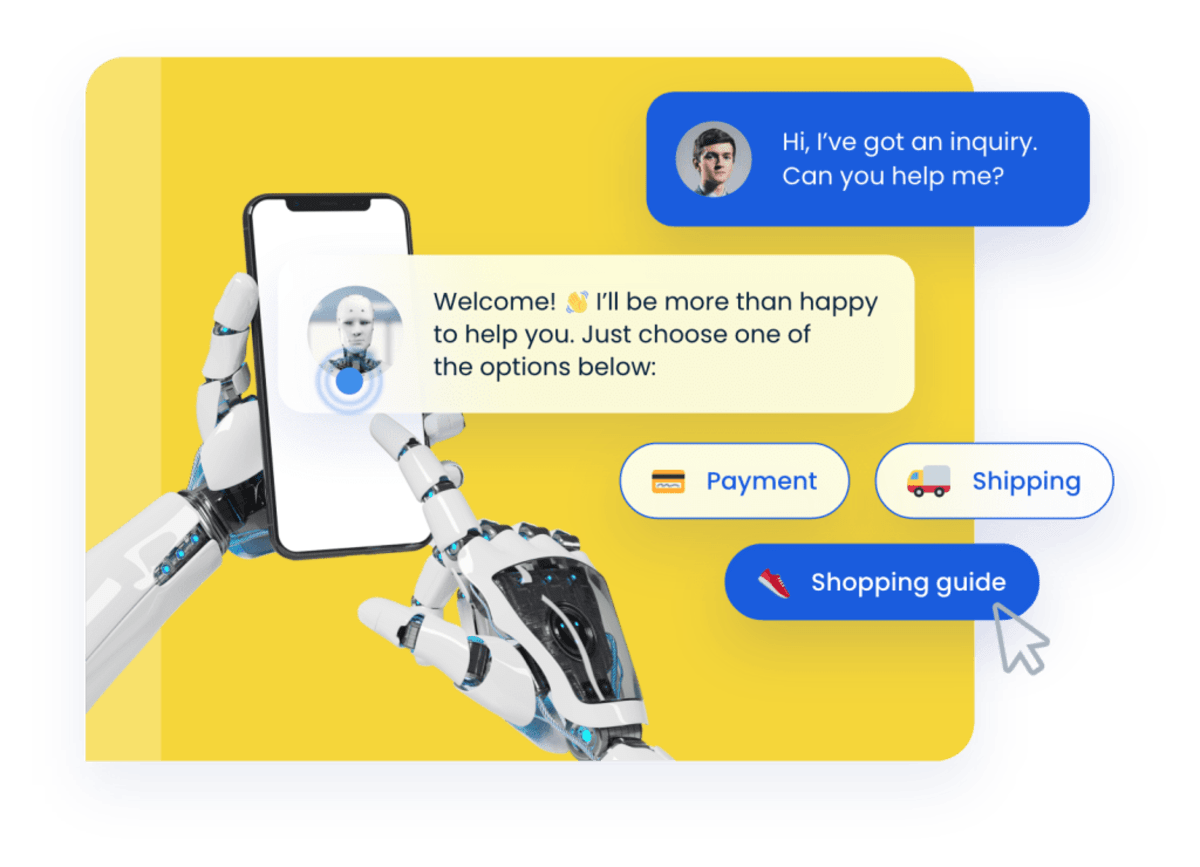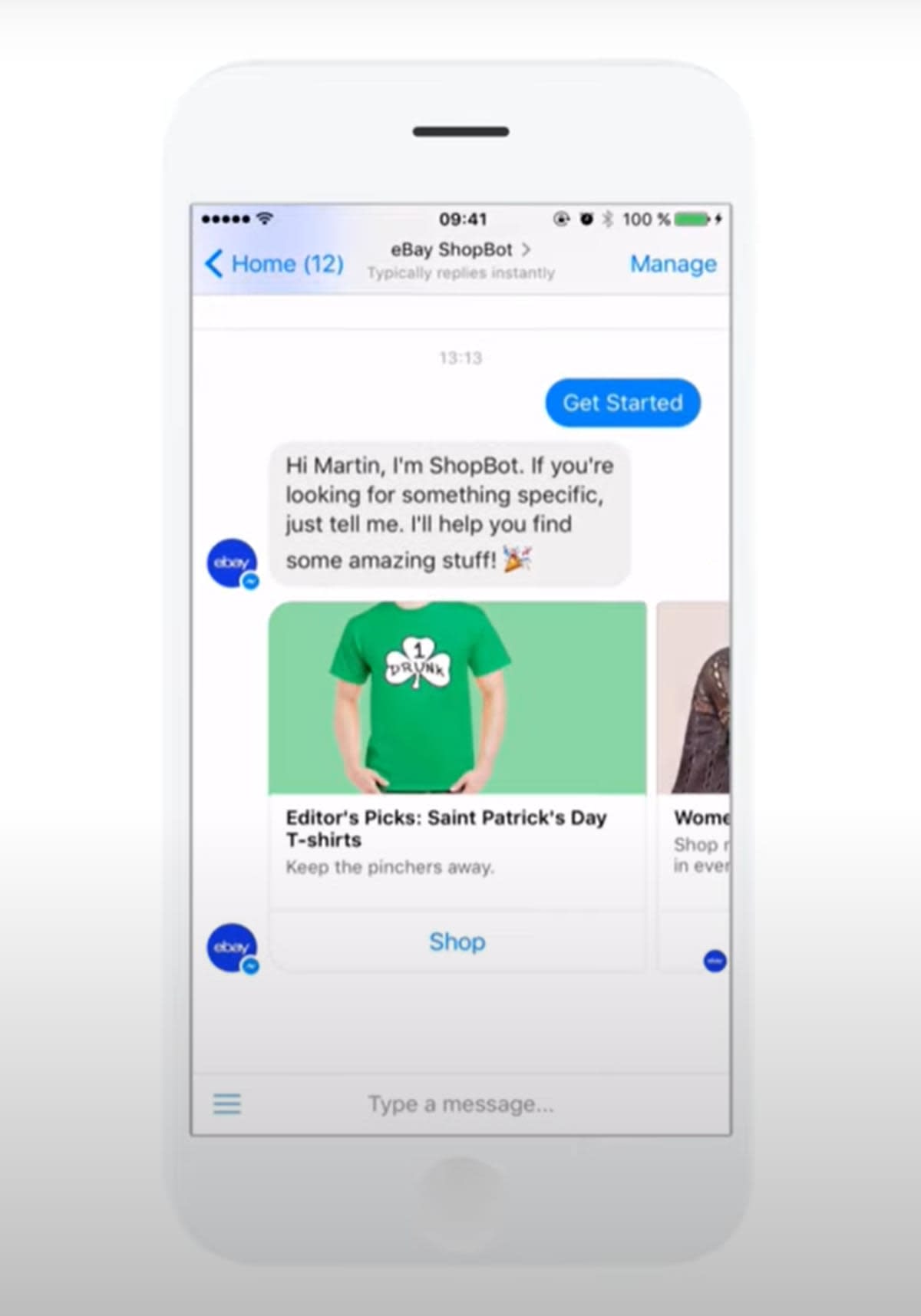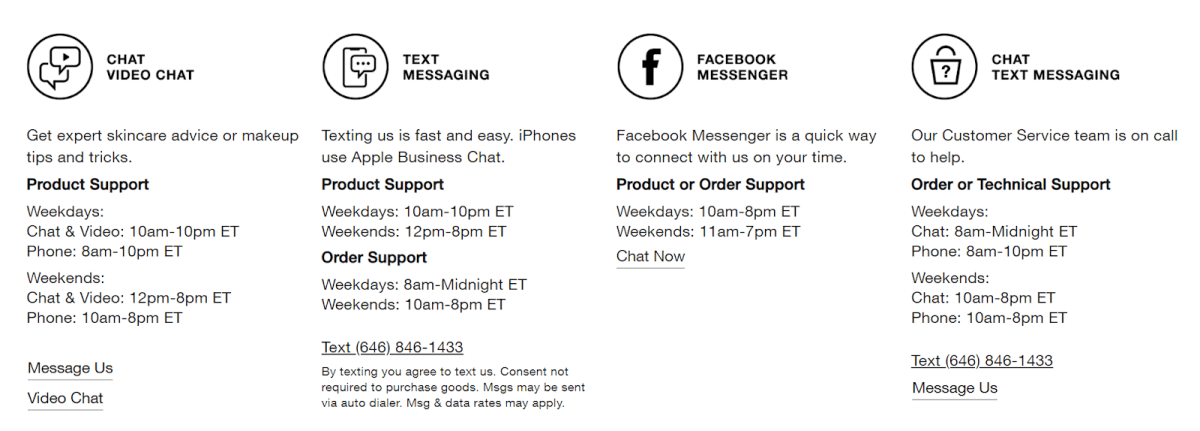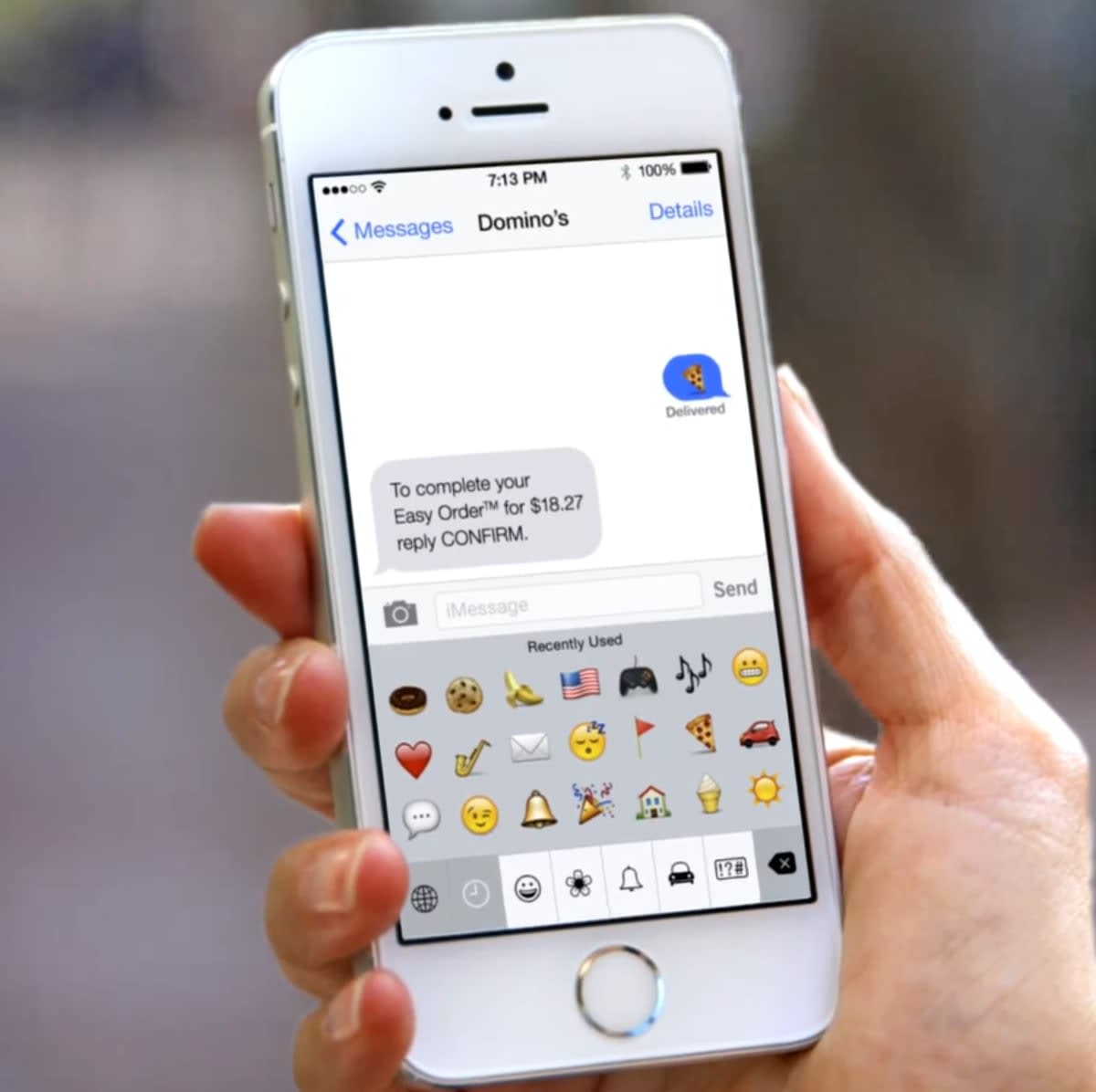Table of contents
What would you say about getting tailored recommendations within minutes as you shop online? How about making an online purchase without scrolling and browsing the web? Tasks such as requests for renewing subscriptions, customer queries about the most highly-recommended products, or even purchasing Christmas gifts can all be done super fast with the customer support of a virtual assistant. This is what conversational e-commerce is about.
There are many commerce strategies that can be quite complicated and time-consuming to implement. But there is one very simple and effective way to get customers’ attention–having a nice conversation.
Conversational commerce is one of the best ways to improve your customer experience. A low product or service price matters, but it turns out that the user experience is even more important.
Here is one great way to improve it.
What is conversational commerce?
Conversational commerce is a way to generate new leads by various means of communication. Very often, it means purchasing via text and bypassing an ecommerce website entirely.
This approach is used by many brands and retailers in order to add a more human element to their online marketing strategies. The size of your company or store doesn’t matter - commerce based on conversation works for everyone.
The core of conversational e-commerce is interaction with customers. Its aim is to build a bridge between online shoppers and shop assistants by chats, live video, or text. What’s more, the primary goal of commerce based on a conversation is to create interactions similar to those that are had in actual stores.
That kind of commerce gives the opportunity for retailers to offer better e-commerce solutions and unique offers.

Benefits of conversational commerce
First off, conversational commerce is highly profitable. Companies can use it to provide real-time support and recommendations to their customers, and it is also a chance to grow the brand and boost sales. Conversational commerce brings benefits to both your ecommerce store and potential customers.
Drive sales with ease
Thanks to conversational ecommerce, customers may have a similar shopping experience as if they spoke with a shop assistant. Both in a shop or online, there is always someone available to help, as chatbots can ask a visitor the same question as a shop assistant would. Being there for a customer to suggest a product or service and answer questions also provides an opportunity to recommend some other suitable options.
Get feedback
You can receive feedback from your clients using conversation-based commerce. The possibility of having a dialogue with customers presents an opportunity to get to know about their shopping experience, which will be valuable for making future improvements. After using your services or purchasing a product, a chatbot can ask customers how they rate the experience in just a few clicks.
Lower risk of cart abandonment
In many cases, customers do not finish making a transaction and drop their purchase. This may happen for various reasons. If you are wondering why customers resign from completing transactions, use a chatbot to ask them about it. As you already know, chatbots are great at gathering customer feedback. Also, an ecommerce chatbot can remind your customers about the products left in their shopping carts and encourage them to purchase. Moreover, it may lead to increased sales.
A chatbot is always in a good mood
Everyone has bad days. It happens, and it’s completely normal. Unfortunately, an agent’s bad mood can affect the experience of customers who want to contact you or need advice. To avoid such situations, chatbots are a great solution - they are always in a great mood and ready to help.
Gain customers’ loyalty
When clients feel cared for and have a good customer experience, they will tend to shop again. A conversational strategy is a fantastic way to provide that. Visitors get personalized recommendations based on their needs, so it’s not surprising that they want to come back to you.
Improve the online shopping experience
Having an answer to a question within seconds might make shopping more enjoyable and satisfactory. And that’s a good reason why you should implement a tool that streamlines conversational flow in your ecommerce business. Even a simple chatbot might provide ecommerce brands with the FAQ across social media platforms and your online store.
Deal with customer queries fast
With chatbots, customer service may be an automated process. For example, Smartsupp offers online retailers a great shopping assistant - a chatbot for ecommerce. All you need to do is to sign up and launch it. And some good news here. Setting up an ecommerce chatbot at your online store takes only 5 steps.

Channels for conversational ecommerce
Here are some channels where you can implement conversational commerce:
Conversational ecommerce chatbots
Order tracking, post sales support, driving sales? They’re all possible with the right ecommerce chatbot. Artificial intelligence (AI), natural language processing (NLP), and machine learning (ML) are the basis for chatbots that are widely used in ecommerce businesses. Thanks to new technologies, AI chatbot support is becoming increasingly intelligent, human, and useful for your business.
Ecommerce AI chatbot may enable you to have automated conversations with customers using natural language. They aim to support customers and bring benefits to your ecommerce store. AI Chatbots are fully automatic, so you can save time and money with visitors that do not need daily human attention. An ecommerce chatbot assistance is growing in popularity–for around 40% of users, it has become their preferred channel.
Live chat
A live chat system enables managing real-time conversations between clients and human agents. Users can contact customer service agents to ask about personalized product suggestions or how to solve problems during shopping. This is a good alternative because nowadays fewer people are eager to make phone calls. Live chats have become the preferred option over mailing or calling. Additionally, live chat provides customers with the same level of service as if they were in a brick-and-mortar store.
TIP: Robust software for live chat allows agents to see past interactions. It can be valuable in identifying frequent customer problems.
Messaging apps
Facebook Messenger and WhatsApp are two leading messaging platforms. They provide opportunities to use popular messaging apps for conversational e-commerce as well. It is worth checking your company’s messages frequently and taking care to respond quickly.
Messaging apps are a great opportunity for online stores to show a personal touch by chatting with customers during their customer journey.
Those online channels give an opportunity to use emojis or GIFs, which give an even more personal touch and shorten the distance between virtual assistants and customers. So, think about implementing apps Facebook Messenger and WhatsApp chatbot technology in your customer support strategy. Believe us, it’s worth it!
Voice assistants
Thanks to artificial intelligence (AI) and natural language processing (NLP), this type of personal assistant is activated by a human voice, responding to questions and reacting to commands. Thanks to this option, a buyer can authorize a purchase without even looking at their screen. A voice assistant is great while driving or doing other activities that keep people’s hands busy. Siri, Alexa, and Google Home are the top voice assistants that are always ready to help.
They’re a fantastic solution for customers but for online businesses as well! Voice assistants work perfectly to boost the sales process because buyers can make purchases whenever they need.
Examples of conversational commerce
Most online shoppers have already experienced conversation-based support. Let’s look at some examples of chatbots for which this kind of communication works perfectly.
#1 eBay
eBay uses a chatbot that is integrated with Facebook Messenger. Thanks to the chat experience, clients have easy access to a personalized shop assistant who is ready to help all the time. Users can find shoes, clothes, electronic equipment, or whatever they are keeping an eye on very quickly and save plenty of time.

Have you ever seen an amazing piece of clothing on the internet, in a shop, or in a friend’s wardrobe and then wanted to buy something similar on the internet?
Customers purchasing on eBay can also send a picture of what they want to buy and get a response with offers.
#2 Lego
Lego uses Facebook Messenger for customer support. Their chatbot, Ralph, assists with choosing an ideal Lego set by asking a few questions. Ralph is very interactive and also quite funny.
Originally, Ralph was created to help customers choose Christmas gifts. Users can get information about products they are interested in on Messenger and don’t have to open a browser to see the descriptions of recommended products.

#3 Clinique
This company offers various channels for conversational ecommerce and not only. On their website, one can find options such as live video chats, messaging apps, Facebook Messenger, and live chats.
Customers who choose an ecommerce chatbot can take a short quiz to find out what type of skin they have. Then, depending on the answers, they will be directed to products that fit their needs.

#4 Marvel
Marvel uses a chatbot solution primarily to sell movie tickets and boost sales. They made it effortless for users to buy tickets via chatbot. There is no need to search for information about the time or place of movies online–the bot asks questions and makes suggestions according to the user’s preferences. Thanks to the chatbot, purchasing a ticket for an upcoming show is quick and easy.

#5 Domino’s
Domino’s made Twitter a permanent option for placing and completing orders. By adding a pizza emoji to a tweet or message on Slack or Facebook, customers can order a pizza to their place. This is an incredible example of a successful conversational ecommerce trend for increasing customer loyalty.

#6 Sephora virtual artist
Providing a personalized customer experience online is not an easy task, especially for the beauty industry. However, ecommerce stores deal with it pretty well. For instance, Sephora Virtual Artist is another way to provide such an experience. A customer uses the app (it works like a virtual stylist) to try on the full look, and in case of any questions about the shipping costs or product availability, they can use a messaging app to reach out live agents and ask questions.

How to start with conversational ecommerce?
Here are some bits of advice that may help you start out with conversational ecommerce.
Set business goals
The first thing to do is think over your business needs and set goals.
- Why are you going to implement a conversational tool?
- Do you want to increase your conversion rate?
- What results do you expect?
- What are you focused on?
The answers to these questions will give you an idea about what to do, what obstacles you may face, and which tool would be the most suitable for you. If your goal is to increase conversions or speed up the purchase process, a chatbot would be perfect for you.
TIP: While setting goals, always keep in mind who your target audience is.
Check what works for you and launch your conversational ecommerce campaign
If your business goals are clear, check which tools would satisfy your needs and which channel would be a perfect match for your ecommerce store.
If you are ready to implement live chats, ensure that there is always someone in charge of talking with customers and responding very quickly. Make sure that your salespeople and customer service reps know the best ways to chat with potential customers.
If there is no such possibility of having someone always available with the clients, a chatbot is a better idea. It’s always good to look before you jump, right? Create an account with Smartsupp and try out a free trial if you are still wondering which tool to choose.
Goals? - set!
The tool? - chosen!
Trial period? - done!
It seems that you are now almost ready with the preparations and that your business is ready to launch a conversation tool.
Let us mention one more thing. To have successful conversational e-commerce, it is good to get some insights–how many people decided to start a chat, and how many products were bought? With that information, you would be able to see how well the strategy works. If you choose Smatsupp, you will get detailed statistics and customer data on shopping experience and satisfaction.
Last but not least. Evaluate the performance of your chosen tool. Leaning on the process of implementing a conversational commerce tool gives you valuable information. How many conversions has it brought? Did you get more positive feedback since implementing the tool? Analysis of the outcomes will help you in making further business decisions.
Conversational ecommerce chatbots technology: Conclusion
Conversational e-commerce can bring many benefits and is a great way to help your business grow. The world is changing at a dizzying pace, and so are the needs of your users. Chatbots that enable the adoption of a conversational approach to commerce are super useful. Interaction with customers helps keep ecommerce businesses developing because it:
- saves your and your customers’ time
- increases customer satisfaction and loyalty
- helps to engage customers and increase sales
That kind of e-commerce strategy is definitely a win-win solution. If you want to have a chatbot on your website, sign up for a free trial.
Conversational ecommerce chatbots FAQ
What are the best chatbots for ecommerce?
One of the best chatbots for online shops is Smartsupp. It provides ecommerce stores with a live chat and an ecommerce chatbot. They are both very useful for customer segmentation, product suggestions, and providing valuable data for your business. Also, it is integrated with many e-commerce platforms like the Shopify store.
Can chatbots be used for ecommerce?
Yes. Chatbots can be integrated into an ecommerce platform or a messaging app to help customers purchase products, track orders, and get instant access to necessary information. Ecommerce chatbots are also used by businesses to handle customer service inquiries.
What are the 4 types of ecommerce chatbots?
Four common types of a chatbot for ecommerce:
- Rule-based chatbots - respond to user input based on predetermined rules.
- Self-learning chatbots - use machine learning algorithms to improve their performance over time.
- Scripted chatbots - communicate using a script or predetermined conversation flow.
- Hybrid chatbots - combine elements of both rule-based and self-learning chatbots.
How is conversational flow used in ecommerce chatbots?
The flow refers to the way an ecommerce chatbot communicates with users and guides them through a series of actions. It can be done through multiple channels. A chatbot should have a logical and seamless flow to help users easily navigate and complete their desired tasks.
What are conversational bots?
Conversational bots, also known as chatbots, are computer programs designed to simulate conversation with users. Bots can be integrated into websites, mobile apps, or messaging platforms. They can use natural language processing (NLP) and machine learning algorithms to understand and interpret user input and increase sales.
What is the benefit of an ecommerce chatbot?
Ecommerce chatbot solution has many benefits: it answers faqs, increases sales, and automates the workflow. Moreover, a live agent is able to spend more time on more complicated tasks.
What is conversational AI?
Conversational AI refers to the use of artificial intelligence technology to enable natural and human-like communication between computers and customers. It may include an ecommerce chatbot that is integrated into websites as well as a voice assistant such as Apple’s Siri or Amazon’s Alexa. Chatbots answer faqs, provide customer support and help increase sales.
How should businesses use an ecommerce chatbot on their website?
Businesses can use ecommerce chatbots for customer service, order processing, personalized recommendations, lead generation, and increasing sales. To be effective, a chatbot should have a logical smooth conversation flow, use clear and concise language, and be able to handle a wide range of tasks and inquiries.

![Conversational Ecommerce Chatbot: 5 Use Cases [Examples]](https://res.cloudinary.com/smartsupp/image/upload/w_1200,h_680,c_fill,q_auto,f_auto/v1648746625/upload/Conversational_ecommerce_chatbot_2x_tgkg5t.png)